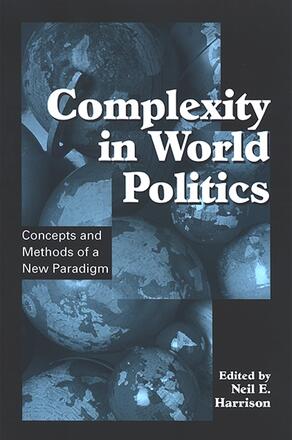
Complexity in World Politics
Concepts and Methods of a New Paradigm
Alternative formats available from:
Demonstrates that world politics is more complex than conventional models can account for.
Description
Despite one hundred years of theorizing, scholars and practitioners alike are constantly surprised by international and global political events. The collapse of communism in Europe, the 1997 Asian financial crisis, and 9/11 have demonstrated the inadequacy of current models that depict world politics as a simple, mechanical system. Complexity in World Politics shows how conventional theories oversimplify reality and illustrates how concepts drawn from complexity science can be adapted to increase our understanding of world politics and improve policy. In language free of jargon, the book's distinguished contributors explain and illustrate a complexity paradigm of world politics and define its central concepts. They show how these concepts can improve conventional models as well as generate new ideas, hypotheses, and empirical approaches, and conclude by outlining an agenda of theoretical development and empirical research to create and test complex systems theories of issue-areas of world politics.
Neil E. Harrison is Founder and Executive Director of the Sustainable Development Institute and the author of Constructing Sustainable Development, also published by SUNY Press.
Reviews
"The volume … is a timely overview of the conjectures advanced by such 'complexification' of the study of global life. In this respect, it pulls together the disjointed analyses on the application and approaches of CT to world affairs. In fact, the very ability of the book to pull off such an endeavor is already a significant achievement in its own right … Complexity in World Politics would benefit both the explorations of advanced undergraduate students as well as assist the inquiry of established scholars of international relations. " — H-Net Reviews (H-Ideas)
"The mapping by Neil Harrison in the volume's introductory chapter of the difference between simple systems and complex ones is very well done, and his argument that the world falls into the complex system category is convincing. " — Political Science Quarterly
"This book is well written and easily accessible, with essays by some of the major thinkers in the field of complexity science. It makes a number of intellectual contributions and helps fill a gap in the existing literature. " — Scott E. Page, coeditor of Computational Models in Political Economy